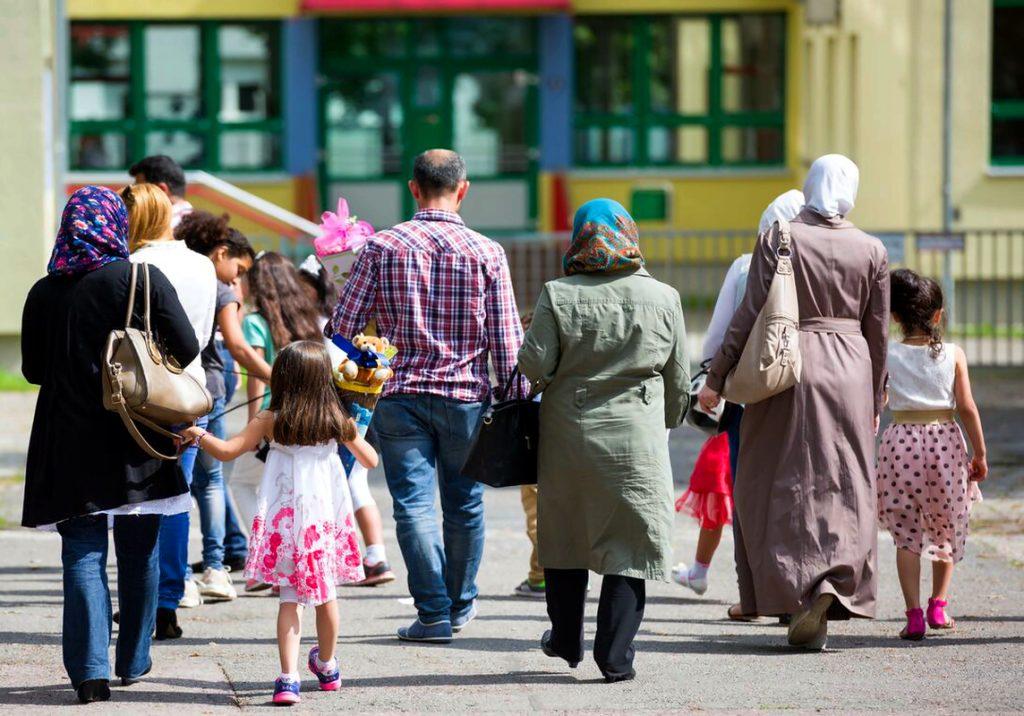
Two studies published by the Organization for Economic Co-operation and Development (OECD) revealed that motherhood keeps migrant women away from the labor market in a worrying way in many countries, noting that France, Germany and Belgium are considered the worst in this regard.
The two studies, which were published on Monday, October 23, shed light on the situation of migrant women in the labor market, noting that foreign mothers often find themselves excluded from employment, in what researchers call the “motherhood penalty.”
About half of migrant women (52%) with young children (aged 0-4) work across OECD countries, 20% fewer than native-born women, of whom about 70% work.
The two studies examined the employment gap in France, especially between immigrant and French mothers, which is larger than it is in most OECD countries, according to the “InfoMigrants” website.
The results of the study revealed that the situation in France (as well as in Germany and in Belgium) is worse than it is in the countries of the region, as this gap between female immigrants and female citizens rises to 30%, according to a first study conducted by Alicia Adsera from Princeton University and Marcela Valdivia from OECD.
Both studies indicate that upon having a second child, “the motherhood penalty increases further for migrant women in Spain, Italy, the United Kingdom and France.”
For women with higher education qualifications, the gap reaches 50 points between migrant and non-migrant women in France. Migrant women also often find themselves working part-time, low-skilled jobs.
Both studies conclude that migrant women within a family facing restrictions “deserve the attention of public authorities,” and most indicators in this document conclude that “Migrant mothers” often fall into the trap of not working because of their family responsibilities.”
These women suffer “a double, triple and quadruple penalty,” according to statements by Jean-Christophe Dumont, head of the migration department at the Organization for Economic Co-operation and Development, in reference to their low professional level rating or even difficulties in accessing child care.
He explains that these problems not only face migrant women who are more likely to have children (often because they arrive in France through family reunification), but “when they have children, they have much more difficulty integrating into the labor market” in France.
According to the latest data issued by the National Institute of Statistics and Economic Studies (INSEE), one in four births (26%) in France is of an immigrant woman in France.
The study shows that in the rest of the OECD countries, on average, immigration plays a very small role in the total fertility rate. Especially since the number of foreign-born residents “is not large enough to have a significant impact on these rates.”
The specificity in France is due particularly to family policy, as public spending on family benefits represents 3.5% of GDP, which is “the highest level in the OECD,” according to the organization. Added to this are the many benefits (parental leave, childcare services, family allowance, tax share, etc.) from which foreigners and French people benefit.
There are many elements that led the Montaigne Institute to indicate that “immigration alone” is capable of balancing the demographic “decline” in France in the coming years. According to a memo it published end of August.
It is noteworthy that the Organization for Economic Co-operation and Development (OECD) was officially established on September 30, 1961, and it aims to support policies that would develop the economic and social situation of people around the world. The organization provides a forum that brings together governments to work together to exchange experiences and search for the necessary solutions to common problems.





